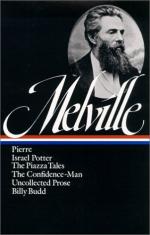The Ranger then stood over, passed the Isle of Man towards the Cumberland shore, arriving within remote sight of Whitehaven about sunset. At dark she was hovering off the harbor, with a party of volunteers all ready to descend. But the wind shifted and blew fresh with a violent sea.
“I won’t call on old friends in foul weather,” said Captain Paul to Israel. “We’ll saunter about a little, and leave our cards in a day or two.”
Next morning, in Glentinebay, on the south shore of Scotland, they fell in with a revenue wherry. It was the practice of such craft to board merchant vessels. The Ranger was disguised as a merchantman, presenting a broad drab-colored belt all round her hull; under the coat of a Quaker, concealing the intent of a Turk. It was expected that the chartered rover would come alongside the unchartered one. But the former took to flight, her two lug sails staggering under a heavy wind, which the pursuing guns of the Ranger pelted with a hail-storm of shot. The wherry escaped, spite the severe cannonade.
Off the Mull of Galoway, the day following, Paul found himself so nigh a large barley-freighted Scotch coaster, that, to prevent her carrying tidings of him to land, he dispatched her with the news, stern foremost, to Hades; sinking her, and sowing her barley in the sea broadcast by a broadside. From her crew he learned that there was a fleet of twenty or thirty sail at anchor in Lochryan, with an armed brigantine. He pointed his prow thither; but at the mouth of the lock, the wind turned against him again in hard squalls. He abandoned the project. Shortly after, he encountered a sloop from Dublin. He sunk her to prevent intelligence.
Thus, seeming as much to bear the elemental commission of Nature, as the military warrant of Congress, swarthy Paul darted hither and thither; hovering like a thundercloud off the crowded harbors; then, beaten off by an adverse wind, discharging his lightnings on uncompanioned vessels, whose solitude made them a more conspicuous and easier mark, like lonely trees on the heath. Yet all this while the land was full of garrisons, the embayed waters full of fleets. With the impunity of a Levanter, Paul skimmed his craft in the land-locked heart of the supreme naval power of earth; a torpedo-eel, unknowingly swallowed by Britain in a draught of old ocean, and making sad havoc with her vitals.
Seeing next a large vessel steering for the Clyde, he gave chase, hoping to cut her off. The stranger proving a fast sailer, the pursuit was urged on with vehemence, Paul standing, plank-proud, on the quarter-deck, calling for pulls upon every rope, to stretch each already half-burst sail to the uttermost.
While thus engaged, suddenly a shadow, like that thrown by an eclipse, was seen rapidly gaining along the deck, with a sharp defined line, plain as a seam of the planks. It involved all before it. It was the domineering shadow of the Juan Fernandez-like crag of Ailsa. The Kanger was in the deep water which makes all round and close up to this great summit of the submarine Grampians.




